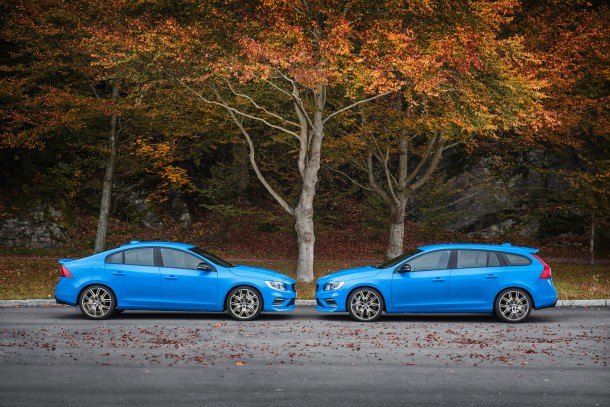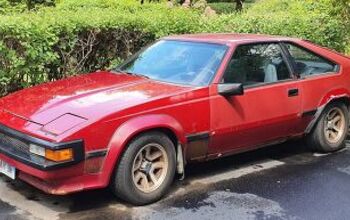Volvo's Polestar Might Become Separate Performance Brand for EVs

Despite being Volvo Cars’ official performance arm since 2015, Polestar has always felt like a separate entity. Its current offerings for the North American market are limited to amped up versions of the S60 and V60 — distinctive in personality and produced in extremely limited quantities. However, Volvo’s parent company Geely wants to make a change, converting Polestar into its own global performance brand focusing on, get this, electric cars.
Apparently, Geely wants Polestar’s future role to mimic Mercedes’ AMG by having it continue to produce modified Volvos while also honing in on exclusive models singularly fixated on performance. However, if many of those are intended to be EVs, questions must be raised as to how things might change at Volvo.
Spilling the beans to AutoExpress, a senior source inside Geely specified that an electrified Polestar should break cover using Volvo Cars’ Scalable Product Architecture (SPA) this year. Future performance models are supposed to employ the company’s Compact Modular Architecture (CMA) as a base, opening speculation for a hot little hatchback. Not that there’s any guarantee of North America ever seeing it. Currently, Volvo’s smallest offering is the S60 — which will persist using the SPA platform and an internal combustion engine.
Volvo will launch its first electric car in the Chinese market in 2019. The brand has also hinted it wants to produce SPA-based electric models and eventually evolve the entire lineup into hybrids. Polestar, however, is poised to beat it to the punch.
However, there is zero confirmation as to whether the upcoming Polestars will be silent running BEVs or use hybridized powertrains. While rumors of the Polestar Cyan Racing joining Formula E suggests the former is a distinct possibility, that level of commitment to pure electrics would place the performance brand in a league of its own.
[Image: Volvo]

A staunch consumer advocate tracking industry trends and regulation. Before joining TTAC, Matt spent a decade working for marketing and research firms based in NYC. Clients included several of the world’s largest automakers, global tire brands, and aftermarket part suppliers. Dissatisfied with the corporate world and resentful of having to wear suits everyday, he pivoted to writing about cars. Since then, that man has become an ardent supporter of the right-to-repair movement, been interviewed on the auto industry by national radio broadcasts, driven more rental cars than anyone ever should, participated in amateur rallying events, and received the requisite minimum training as sanctioned by the SCCA. Handy with a wrench, Matt grew up surrounded by Detroit auto workers and managed to get a pizza delivery job before he was legally eligible. He later found himself driving box trucks through Manhattan, guaranteeing future sympathy for actual truckers. He continues to conduct research pertaining to the automotive sector as an independent contractor and has since moved back to his native Michigan, closer to where the cars are born. A contrarian, Matt claims to prefer understeer — stating that front and all-wheel drive vehicles cater best to his driving style.
More by Matt Posky
Latest Car Reviews
Read moreLatest Product Reviews
Read moreRecent Comments
- Zipper69 " including numerous examples of the Cybertruck"I could only see four in the lead photo, but they are kinda anonymous from above...
- FreedMike These were great cars, but I don't think they're particularly novel or collectible. You can get a newer beater for that money that'd be easier to keep fixed.Good to see these soldiering on, though.
- Funky D The only piece of technology introduced in the last 10 years that is actually useful is the backup camera. Get rid of the rest. All I want is a car with that and phone connectivity and zero driving nannies.
- TheMrFreeze As somebody who's worked in IT for my entire career, I don't want any computer automatically doing something of this nature on my behalf. Automatically turning on my headlights? Sure (and why hasn't THAT been mandated yet). Automatically braking, or steering, or actually driving my car for me? Not an effing chance...I've seen computers do too much weird stuff for no reason to trust my life to one.
- Daniel J Our CX-5 has hit its automatic brakes a few times at in very unnecessary situations. My 2018 doesn't have it, but it will shake and throw a warning if it thinks you should brake. Only once was it needed. The dozen or so times it has gone off I was already on the brakes or traffic was in a pattern that just fooled it.

































Comments
Join the conversation
I do like that Volvo blue. Ford blue is nice, but its comes in second.
I get it - Double-Pole-Double-Throw-Star.